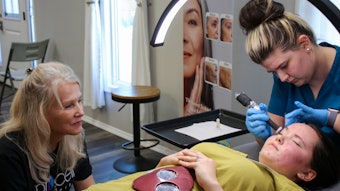
No matter how large or small your business, it is important for it to have an employee code of conduct. By establishing a code of conduct you are providing team members with a blueprint of ideal behaviors for their success.
Ethical guidelines not only help set boundaries, they also assist in creating a culture of professionalism and comfort in the workplace. When carefully crafted and correctly implemented, codes of conduct are not about policing employees; instead, they provide a framework of acceptable conduct for a professional and consistent client experience.
Guidelines
It is nearly impossible to list every single ethical dilemma that might arise while on the job. By having at least a few ethical guidelines in place, employers will have a template to get started. Take a look at various topics other spas include in their codes of conduct.
Communication. In the age of cell phones, e-mail and social media, the potential for inappropriate communication is enormous. Many companies are setting boundaries for how employees communicate not only with clients, but the general public, as well. Some spas devise communication policies that instruct employees to e-mail and contact clients only from company-issued e-mail accounts. Other companies have included statements that subject employees to disciplinary action if they are found engaging in behavior deemed detrimental to the company’s reputation on various social media outlets. The penalties for such behavior can range from suspension to termination.
Client and team boundaries. Spa owners want to make sure that their team is consistently providing stellar customer service that supports the company’s values and culture. As a result, many spas have behavioral guidelines that address company expectations for client and employee interactions. These guidelines often include statements that address the following:
- Handling client information;
- Dating clients;
- Treatment room boundaries; and
- Protecting the security of high-profile clients.
Networking with clients. In recent years, spas have added networking to the list of off-limit behaviors in their employee codes of conduct. In an effort to protect their businesses, owners are using ethical guidelines to limit employee and client interactions by restricting employees from exchanging personal information with clients. For example, many employers restrict the exchange of business cards, personal e-mails and outside contact information between employees and clients. Managers have also requested employees obtain managerial approval to attend clients’ personal events, such as baby showers, weddings and other milestones.
Implementation
Employee codes of conduct are usually disseminated, discussed and agreed upon during new employee orientation; however, that is not the only time they should be discussed. Treat your employee code of conduct as a living document that is current and reflective of industry and spa-specific issues. Employee codes of conduct should be reviewed and discussed at least once a year. Lastly, be sure that if you add changes or updates to your guidelines, each team member signs off on them again.
The bottom line
More often than not, the ethical guidelines presented in codes of conduct are obvious to most team members; however, it only takes one mistake to jeopardize the reputation of the business. Since employee codes of conduct are not all-inclusive, skin care facilities should, at a minimum, safeguard themselves by having a document that spells out ideal employee behaviors and leaves the door open for behaviors not exclusively listed within the code of conduct.











